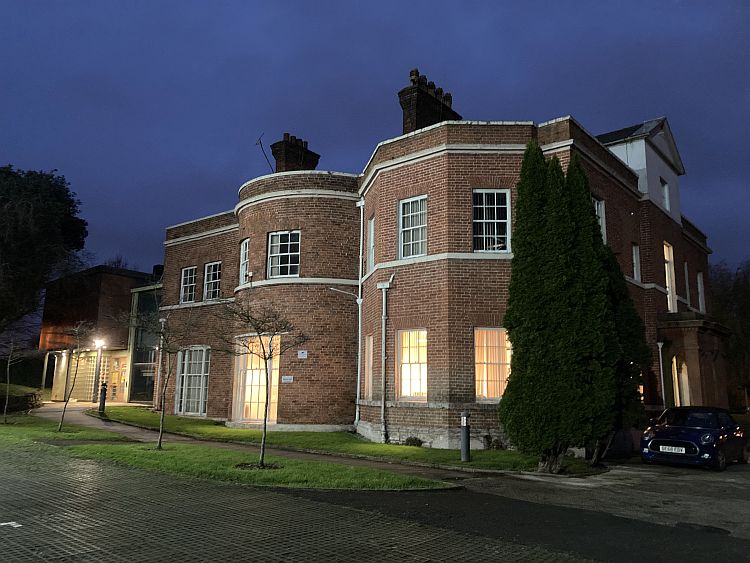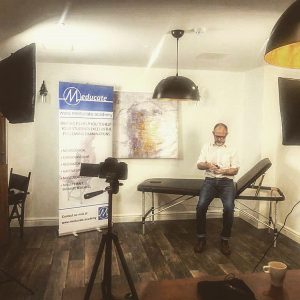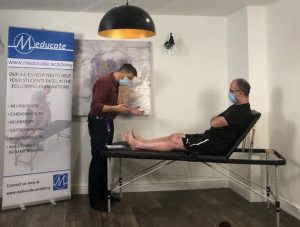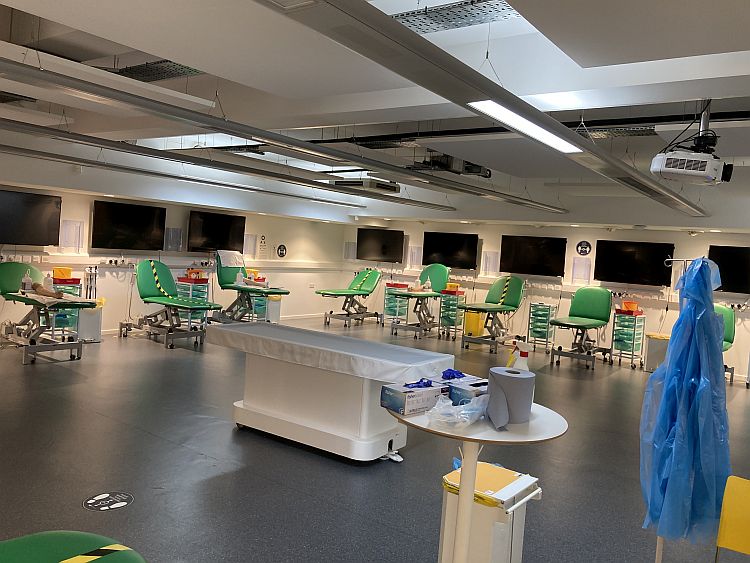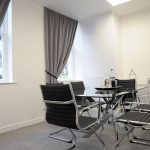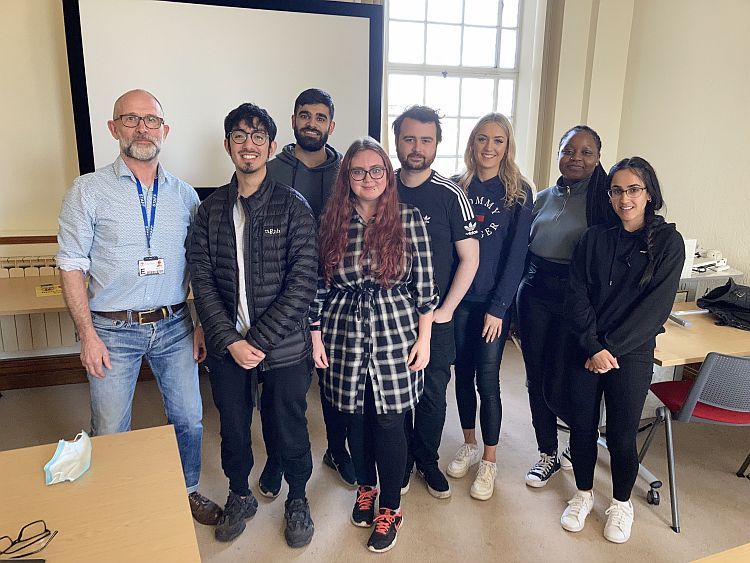
For many years I’ve worked with thousands of students in medical schools and institutions teaching specifically on the physician associate programme at Wolverhampton and Chester University. It’s been a highly satisfying job and allows me to do what I love more than anything and that is to teach students! One of the major concerns students have are about passing their OSCEs. From the day their course starts to the day of their exams the conversation inevitably centres around one topic: The dreaded OSCEs.
OSCE is an acronym that has become linked to insecurity and fear, most of which is unfounded. These fears and insecurities are prevalent with most PA students wherever I am teaching. The common questions I get asked are:
“What’s going to happen in the OSCE?”
“What happens if I fail the OSCE?”
“Are they going to try and catch me out in the OSCE?”
“I get really nervous before any exam and never do well.”
It’s all students think and talk about to colleagues and friends. It seems to be the main topic of conversation whenever I talk to students. I often tell the students, why not focus this emotional energy and time on the coursework itself. These negative types of conversations can only produce one outcome; that all involved in this unproductive dialogue will scare each other to death. Instead, I get them to imagine using that intensity of focus on doing what they need to do to pass the exams, rather than fretting, worrying and talking to other students who also feel the same way.
These negative thoughts and ideas about the OSCEs are after all just assumptions based on ignorance. Ignorance inevitably leads to the imagination running riot and before you know it you have prepared yourself to fail the exam. Talk of OSCE fears inevitably start in week one of the first term, two years before the actual national exams. What a waste of time and energy.
When I talk to these students (usually in their 1st year) I ask them,“What made them choose the PA Programme. What made them want to be a Physician Associate? What is it about the PA Programme that excites them? Does it excite them?” In other words, I ask them if they know their purpose in becoming a PA?
“Why are you doing this course?”
“What will you get out of becoming a physician associate?”
“What is your purpose?”
Their usual response when asked these questions is to get confused and talk about setting goals and passing the exams. A few will say it’s what they have always wanted to do. A minority will say that their purpose is to care for people and see themselves as a compassionate person. This is what drives them each day. Now that sounds like someone who understands their purpose in life.
I knew one PA many years ago who shared his thoughts with me after a session and he had just this mindset. He said when he was a student and thought about the OSCEs it got him excited, not afraid. He looked forward to the OSCEs because this meant he was getting nearer to his goal of fulfilling his purpose which was to help others. Incidentally, he passed all 14 stations in the National Exams later that year. He knew what his purpose was and kept that in mind every day. Yes, he was nervous before the exams, but he had developed a strategy for dealing with those emotions. More of that later.
Once you have defined your purpose, you now need to review it every day and get yourself excited about achieving the goal of becoming a PA. If you stay on purpose you will achieve your goals both short and long term. But remember a goal without purpose will be short-lived.
This is a strategy I have always used and it helps keep me focused. I know why I am doing what I am doing and I know I will reap the rewards. I have never been goal oriented only purpose driven and yet I seem to achieve my goals.
Another technique I encourage students to practice is to add a sensory component to their thoughts when they think about their approach to the PA course. For example:
“How will it look when you are working as a PA?” (Visual component)
“How will it feel when you are doing the job you were born too do?” (Kinesthetic component)
“Imagine how it will sound when you proudly tell people you are a Physician Associate”, (Auditory component)
Employing your imagination and thinking like this changes your mindset so that you stay focused on your purpose. You have already been doing this when you have spoken negatively about the OSCEs. You know how to do this, but have been using your imagination to work against you and not for you. Use your brain for a positive change, not a negative one!
When fellow students say things like:
“What happens if I fail the OSCEs?” I always re-frame it and say: “What happens if you pass the OSCEs? What would that look like and feel like in your minds eye?”
By staying focused on that feeling your energy will begin to change. You will approach each task with the knowledge that you are getting closer to living out your purpose.
Sometimes, it is true to say that you will encounter setbacks, when things don’t quite work out the way you wanted them. I call these badly formed outcomes. I don’t see them as a failure. These situations are often outside of your control and have been dictated by others. That’s OK. See these episodes as just feedback. That’s all. This approach allows you to stay focused on what’s important and not worry about being a failure. This just wastes emotional energy. Energy you can use in a more positive way.
A great way to re-programme your brain, so that you do more of the above, is to sit for 10-15 minutes a day in a quiet place. Focus on your purpose, imagining how you will feel when you finish the final station of the OSCEs and become a Physician Associate. You should timetable this in to your activity every day. It’s an OSCE meditation, if you like. It will be time well spent and as mindfulness is a big thing at the moment why not get in with the trend?
I’ve taught and used meditation long before it was fashionable, as well as taking part in physical exercise, both of which have helped me stay balanced and integrated and lead a pretty stress free life. So why not add those two beneficial activities to your diary every week to improve your mental and physical health. These activities will not only help you with work, but in all areas of you life.
I suggest you give both a try and 10-15 minutes of meditation every day will show you what state your mind is in. It will teach you how to ensure that you won’t be ambushed by the inevitable negative thoughts, internal dialogue and subsequent emotions when the acronym OSCE is mentioned!
When you sit in meditation for the first time, many thoughts will come into your awareness. Being a PA student you may encounter many negative reactions including thoughts about the OSCEs. Focus on those thoughts and then do the following:
- Observe the emotion, the reaction and see it for what it is. Just a creation of your mind. Just a sensation in the body.
- Then Let It Go. That’s right,just release it and watch it vanish. A student once said to me what happens when this train of thought arises? I said, “Do not get on the train”. “Let it Go. Let it leave the station”. She said she waved it off, smiled and felt relief.
- Once you have Let Go of the thought, any inevitable knee jerk reaction you would normally experience will stop. Allowing you time to …
- Be in the moment and come back to focusing on your purpose. These techniques will help you to become more mindful of your mental states, and you can practice this awareness which will carry over into your daily life.
It is a great technique for improving your overall mental health too. It helps you remain balanced and integrated in the other aspects of your life. Do it for a week and see how you feel!
This doesn’t mean you wont be influenced by those around you though. They will still attempt to discuss their failings with you but this time stay focused and listen politely with out getting dragged into the conversation. I have a technique to deal with that to and I’ll share it now.
When the negativity starts to flow from others around me and they don’t want to listen for an alternative, I have a delete button. Yes a delete button in my head. I use it quite a lot actually. Mainly if I listen to the news. But seriously, it can be a powerful tool and a great strategy that will help you stay on track. Just use it for a week and see what happens.
It turns out that this is what successful people seem to do most of the time. Some of the most successful people have not listened to the naysayers and the critics. They stay on purpose until they achieve what it is they are looking for. If you become one of them you become an optimist. Optimists always seem to get things done. They don’t always succeed on the first attempt, but optimism keeps them going. There is always a silver lining to every cloud and a light at the end of the tunnel for an optimist.
By putting yourself in this mindset you are as the saying goes, “living in the moment”, but with an optimistic eye on the future. The only alternative is of course to do what you are probably doing already:
Thinking about how tough the OSCE will be and how badly you are going to do.
Filling your head with self-doubt and negative internal chatter.
Deciding ahead of time how you are more than likely going to fail a station or two.
If you’re doing that, use the delete button or turn the volume down! Drown out the internal dialogue by reminding yourself of your purpose, and asking yourself every day as to just why you want the job of a Physician Associate.
If you want to learn more about some of these strategies and techniques Bob will be running an online seminar on 23rd July 2022 at 12pm until 2pm explaining in detail how to put these techniques into daily practice. Once you’ve signed up for the course you will receive a downloadable handbook on how to improve your mental health.
When you enroll on the course please send your questions to Bob in confidence and he will address those issues during the online seminar. The cost, including the manual, is only £9.99 paid via PayPal.
He is also available to do 121 coaching for any students who feel they need a little bit of personal help. Contact him on 07870 611850 to arrange private Zoom meeting.

